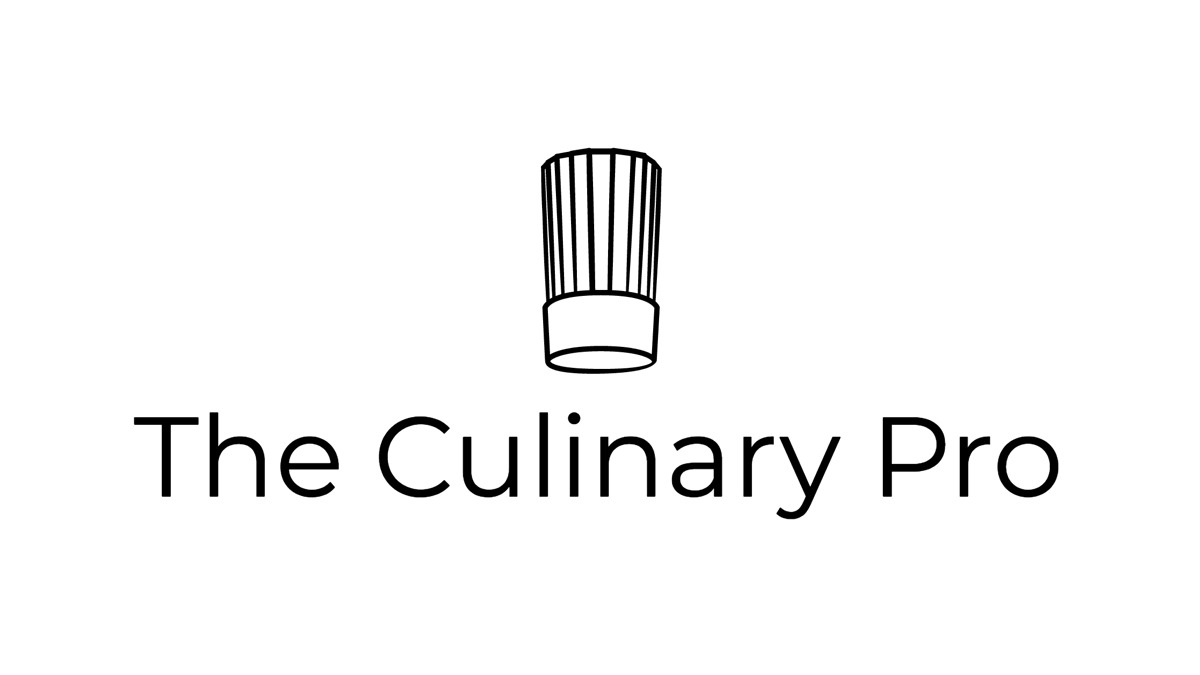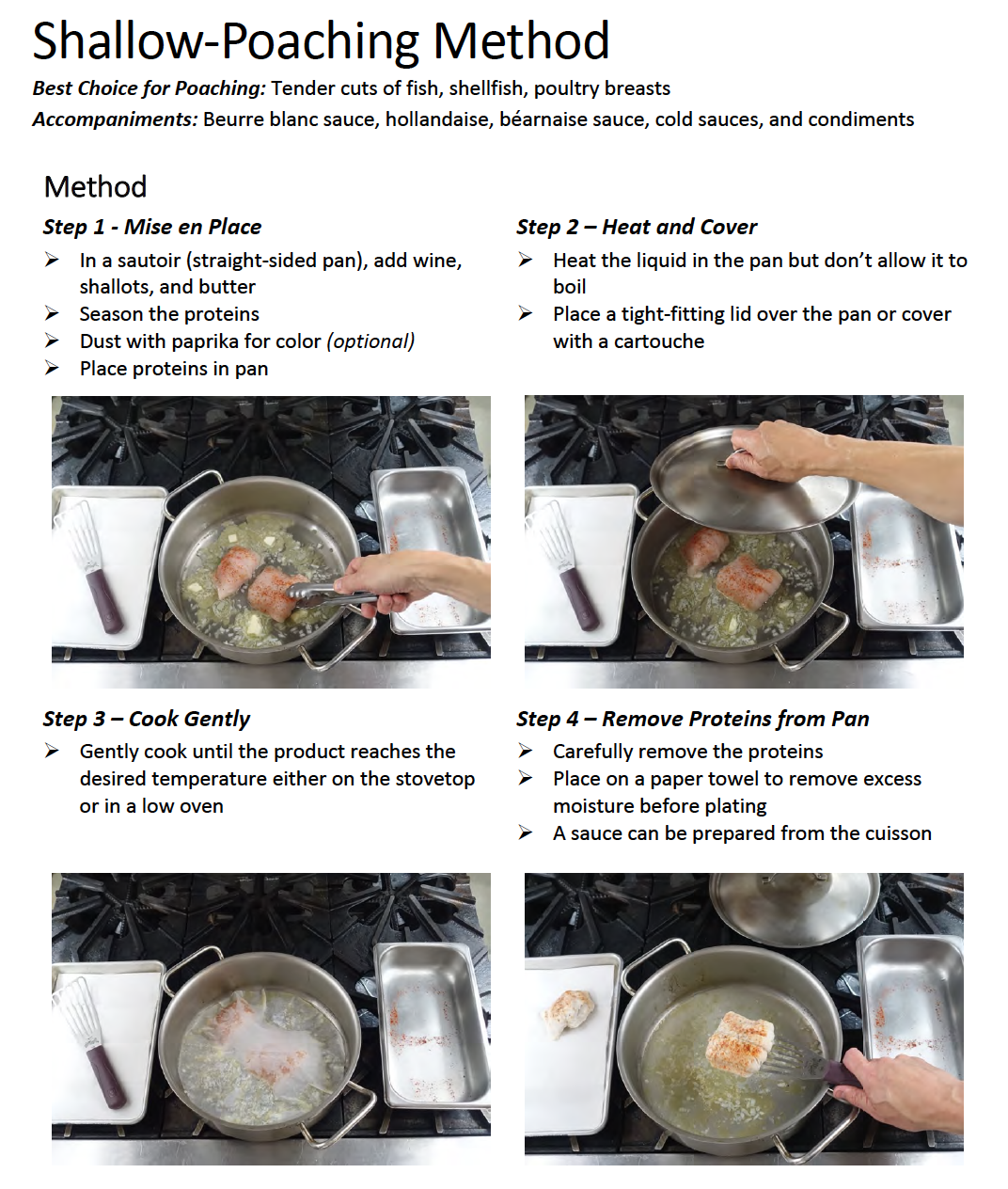Poaching
Poaching is a low-temperature, moist-heat cooking method from 140-190°F/60-88°C suitable for delicate, lean proteins, like fish, shellfish, poultry breasts, and beef or pork tenderloin. There are three basic methods for poaching; shallow, submerge, or deep-poaching. Butter-poaching and oil-poaching are variations of deep-poaching.
Shallow Poaching
Shallow poaching is prepared in straight-sided sauté pan (sautoir) with a tight-fitting lid. Coat the pan with butter and add shallots along with a small quantity of wine or wine vinegar. Season the protein and place in the pan. Covered with a buttered cartouche (parchment paper round) and slowly heat until vapors begin to appear. Cover with a lid and finish in a low-temperature oven. Remove the items from the pan when cooked and prepare a sauce from the remaining liquid, also called a “cuisson”.
Submerge Poaching
Submerge or deep-poaching is used for larger cuts of meat or poultry by cooking them completely submerged in a court bouillon. Delicate items including whole fish may be wrapped in cheesecloth to hold their shape and maintain their integrity. A sauce is prepared separately.
Poaching in Fats
Butter-or oil-poaching is a variation of submerge poaching that uses fats instead of liquids heated to a low temperature. Suitable for lean, tender items including lobster, fish, poultry breasts or tenderloin, seared first before submerging in fat. A confit is a variation of this technique.
Types of Poaching Liquid
Wine, wine vinegar, or a combination of the two are used in shallow-poaching.
Court Bouillon – Also known as a short stock, with water, wine or wine vinegar (red or white), mirepoix, salt and a bouquet of herbs is used in deep-poaching
Beurre Monté – An emulsified butter sauce that is held at a low temperature, about 190°F/88°C
Olive Oil - The best poaching liquid for keeping food extremely moist and velvety; use a refined olive oil not extra virgin
Other Liquids - Milk, water, stock, fumet


